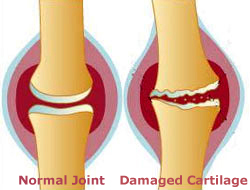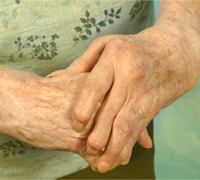Arthritis Management
The best way to treat arthritis is by managing it. The main objective of Arthritis Management is to offer relief from the pain, enhance the strength and movement of joints/bones and manage the disease to the possible extent. At Tomar Orthopedics, we provide an array of suitable treatment options after understanding the scope and extent of arthritis in a patient. It includes medication, exercises, physiotherapy, heat/cold compresses and surgery. Each patient is different and thus responds differently to the given treatment. It also implies that treatment may involve more than one of the said options.
An early diagnosis of arthritis is considered as the key to arthritis management, which may include most of the types mentioned. It aids in managing pain, minimizing disability or tissue damage, which in itself is impressively possible. It is essential to follow the doctor’s advice and make necessary lifestyle changes in order to keep it under control. We advice our patients natural therapies such as, occupational therapy, physical therapy, pain-working classes, mind relaxation sessions etc. to improve their quality of living. It also controls fatigue caused due to arthritis.
We understand that it is vital that you stay active and keep yourself mobile otherwise, you may develop contractures which can cap your range of movement. We have experts who monitor your therapy sessions, teach you right exercises and demonstrate you ways to mitigate stiffness and strengthen your arthritis-affected joints.
Dr.L.Tomar is a globally renowned orthopedic surgeon, who has performed surgeries in extreme cases for joint restoration or replacement. After understanding the type, extremity and physical symptoms of arthritis in the patient, he consults him the right course of treatment as a part of arthritis management.
Key focus is given on:
- Daily exercise and therapy
- Regular medication to relieve pain or swelling, if any
- Measures to manage weight
- In extreme cases, surgery If that is the best option to prevent serious harm to joints
- Education and support

What is Arthritis?
Arthritis is a rheumatic condition caused by joint inflammation. The point where two dissimilar bones meet and aids in moving the parts of the body connected to those two bones. Inflammation of one or more joints leads to joint disorder and chronic pain, which may also lead to tissue damage.
One joint : MonoArthritis
Two or three joints : Oligoarthritis
Four or more Joints : Polyarthritis
Studies highlight that it is a common disease and is affecting the lives of number of people in the world. As per medicinal science, arthritis pain can be managed and patients can still retrieve their life through following the arthritis management therapy.
How many types of arthritis are identified?
Actually, there are over 200 types of arthritis identified by the experts. Some of their common types are as under:
- Crytalline Deposition Diseases
- Seronegative Spondyloarthritis
- Infectious Arthritis Like Septic And Lyme Arthritis
- Reactive Arthritis
- Ankylosing Spondylitis
- Psoriatic Arthritis
1. Osteoarthritis:
It is caused due to deterioration of cartilage, a smooth, soft material that covers the bones and that allows the movement of joints painlessly. This leads to rubbing of joint bones against one another, which causes serious pain and swelling. It is also known as degenerative joints disease.
2. Rheumatoid Arthritis:
It is caused due to misdirected immune system. A chronic disease affects hand, wrists and knee joints mainly. The chronic pain damages bone, cartilage, and can harm skin, nerves as well as eyes.
3. Gout:
When body is not able to exterminate a natural substance i.e. uric acid, it causes severe pain and formulates needle-like crystals in joints. It affects wrist, knee or big toe joints.
Following are other kinds of common or uncommon inflammatory arthritis:
What are the possible symptoms of arthritis?
Since there are many types of arthritis, they have varying symptoms depending on patient to patient. Osteoarthritis typically shows signs of pain in joints. Other types may portray symptoms like severe pain, stiffness, joint deformities, swelling, redness, inflammation, fever, rashes or fatigue. There can be motion difficulties, poor functioning of joints, loss of hand’s grip etc. that may confirm the diagnosis.
After diagnosing the symptoms of osteoarthritis and conducting a physical examination, orthopedics recommend X-ray or MRI to ascertain the joints condition in the body. In other cases, they may ask for blood, urine or joint fluid test to ascertain the actual type of arthritis.
Causes
Medical Researchers have not yet found the exact cause of most types but there are potential risk factors that play a crucial role in probable development of some types of arthritis.
Some of them are:-
- Physical injury causing degenerative arthritis
- Gout may be caused by abnormal metabolism
- Osteoarthritis can be genetically inherited
- Infections may cause lyme or septic arthritis
- Rheumatic arthritis is caused due to Immune system disorder
- Increasing age increases the risk of developing osteoarthritis
- Women are more prone to arthritis than men
- Extra weight put additional pressure on weight bearing joints i.e. knee
- Working conditions that involve heavy lifting of weights or that involve recurring movements increases the risk of arthritis

Frequently Asked Questions (FAQ)
Yes, it affects all ages including children but studies reveal that it is commonly found in adults over the age of 60 years.
Joint replacement surgery is performed if the patient is experiencing severe chronic pain in any of his joints like ankle, elbow, knee, hip, shoulder, finger, wrist etc. It helps in preventing joint damage, which may lead to disability, or tissue damage. It can restore movement, mitigates pain and help you reclaim your active, normal life. As per case studies, there are low risks of complications from this surgery. The right time of the surgery varies from patient to patient depending on the type of arthritis and his condition. However, it is advisable to get the surgery done before it can damage your joints.
Arthritic Management can be done on its own under the guidance of orthopedic and arthritis doctor i.e. rheumatologist. Once you are diagnosed with it, embrace arthritic management by understanding what lifestyle modifications are essential to manage your pain as well as the disease. It includes activities, exercises, food, staying active & happy, therapies and getting sufficient sleep. It will help you control arthritis and you can enjoy your normal day-to-day activities. It will reinforce your joint movements and keep you fit.
Arthritis except infectious arthritis cannot be actually prevented. Most forms are genetically passed on to some extent and those, which are caused due to joint injury, require caution and strict adherence of prescribed rules in their future to prevent any joint damage.
